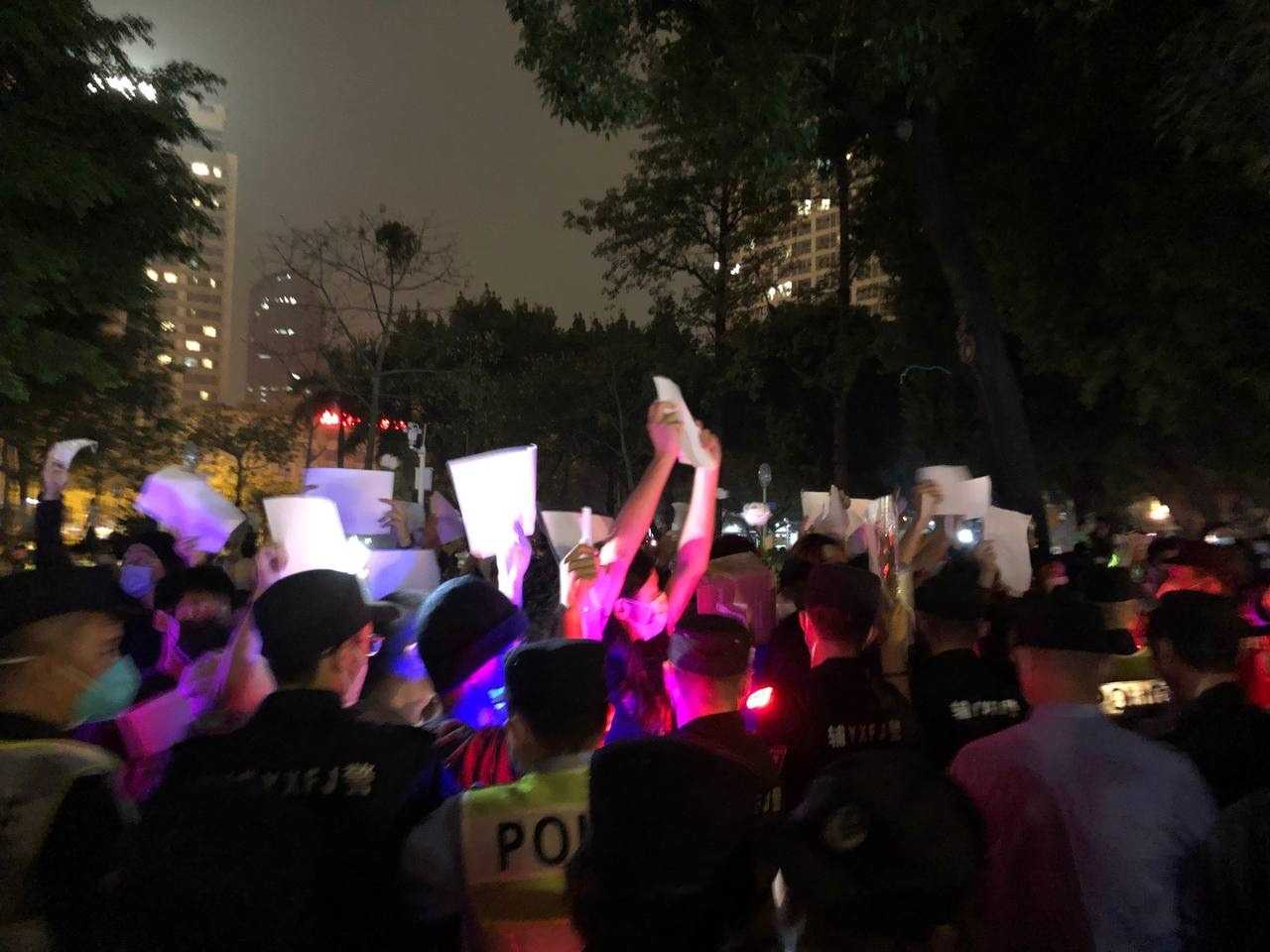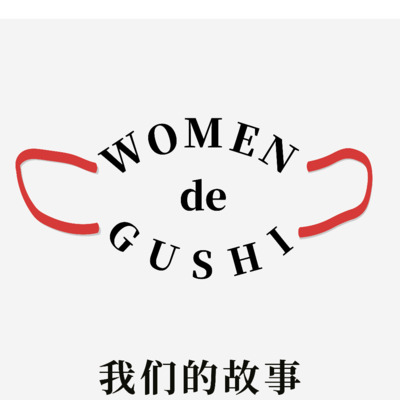
Our Stories: Women in COVID-19 in China
This is the fourth issue of the “Our Stories” series published by WeChat public account “We and Equality,”, a compilation of 20 oral narratives from Chinese people who lived through the COVID-19 pandemic firsthand, and a personal reflection by the author of this issue, Qiao Yilin. The editors hope to “document the history of ordinary people, to combat the forgetting that should never have happened, and to present the real experiences, feelings, and voices of all of us–to help us remember what has happened to us.”
The interviewees in this volume are diverse, including those of different ages, educational background, ethnicities, physical and mental status, sexual orientations,marital status, and mobility. They shared their own memories of the pandemic, including facing threats to their survival due to food shortage, not being able to take anti-depression medication due to the lockdown, international students having a hard time returning to China, people with hearing impairments facing various inconveniences, and the discrimination faced by those who had recovered from COVID-19Although primarily focusing on experiences and feelings during the pandemic, many interviewees shared additional personal stories that provided useful background information for readers to understand their situation during the pandemic.
In addition to these personal narratives, “We and Equality” also published a 44-question “Women's Mental Health Questionnaire” on WeChat, asking about respondents’ experience during the pandemic, including their sense of belonging, care/housework commitments, sleep quality, emotional and mental status, feeling about quarantine, lockdown, illness or death of loved ones, and attitudes towards the government’s COVID-19 policies. The questionnaire received a total of 453 valid responses. Based on the responses, “We and Equality” has compiled a bilingual data analysis report.
”We and Equality" is a grass root project started in November 2016. Through the WeChat public account, they publish articles weekly to raise awareness and share knowledge on gender-related issues in China. They also organize in-person activities bi-weekly where people gather for in-depth discussion, and foster a community to promote gender equality.
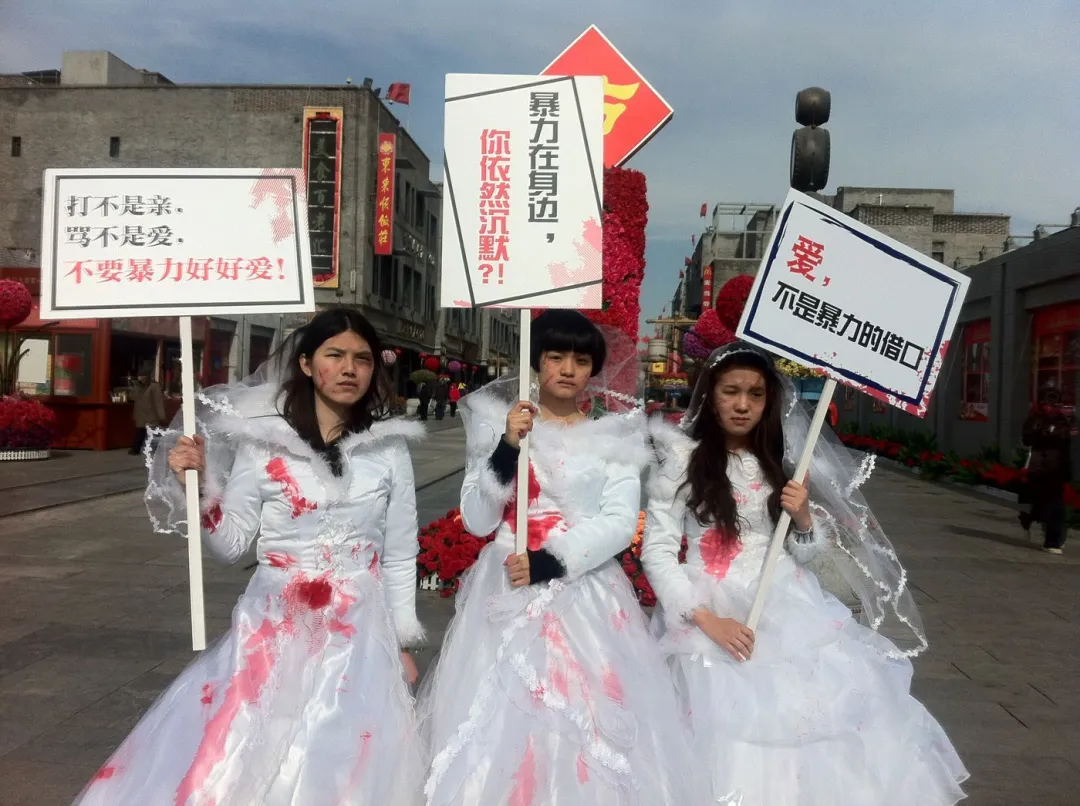
A Brief History of Young Feminists Activism in China
Since 2012, a group known as the “Young Feminist Activists”, has emerged in China. They often use performance art in public to promote gender equality issues; they question injustice, and engage in policy advocacy to advance women’s rights. They make use of social media and the internet to provoke public debate, build public support, and mount pressure for social and self-transformation in China. Their direct actions created new space for activism in China's tightening political environment.
This article provides a detailed overview of the actions initiated by the young feminist activists between 2012 and 2019. These actions cover a wide range of gender issues, including but not limited to sexual assault/harassment, gender-based violence, gender equality in employment and schooling, gender stigma and stereotyping, marriage autonomy, and lesbian rights and interests. These actions have not only raised the public's awareness of gender equality, but also promoted the introduction of gender equality legislation and policies.
A turning point came In 2015 when five young feminist activists were arrested and detained for 37 days for planning to hold an anti-sexual harassment campaign on March 8, Interantional Women's Day. Since then, young feminist activists have almost completely lost their space on the streets. However, as can be seen from this article, feminist activism did not disappear, but sustained and continued in a variety of ways, including the creative use of social media and leveraging transnational solidarity and action.
In the article, the author says, “Young feminist activists should not be forgotten by the public, especially in an environment where censorship has intensified in the past years, civil society has nearly collapsed, and it is extremely difficult for people to speak out. While there is a seeming increase in discussion of feminism in domestic social media, it has been severely depoliticized, feminist activists are marginalized and stigmatized, and their voices silenced. Therefore, it is particularly important to tell the stories of young feminist activists and popularize knowledge about the domestic feminist movement. It is important to let more people see the spirit and achievements of the new generation of Chinese feminists, and understand the important gender issues they have promoted.”
The article is accompanied by numerous images, videos and links to other resources for further reading.
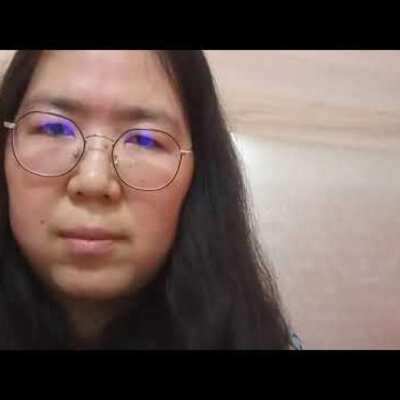
Zhang Zhan Video Series of COVID-19 Outbreak in Wuhan
On 23 January 2020, the Chinese government imposed a lockdown in Wuhan. On February 1, Zhang Zhan took a train from Shanghai to Wuhan. From then until her arrest by the Shanghai police on May 14, Zhang Zhan continued to document the situation in Wuhan on video at the frontline of the pandemic. On February 7, she launched a YouTube channel under her real name and released her first video, “Claiming the Right to Freedom of Expression,” in memory of Dr. Li Wenliang and in solidarity with citizen journalists Chen Qiusi and Fang Bin, who had been taken away for reporting on COVID-19. She said in the video: “If Chinese citizens still do not have the right to freedom of expression,then we are all Li Wenliang." On the same day, Zhang Zhan received a phone call from Shanghai's state security agency threatening to quarantine her if she continued to speak out online, but she did not give in. By the time she was arrested, Zhang Zhan had posted 122 videos on <a href=”https://www.youtube.com/@%E5%BC%A0%E5%B1%95-y3p/featured”>her YouTube channel</a>. In her videos, she traveled around Wuhan at the height of COVID-19, documenting empty streets, the roar of funeral home incinerators late at night, the desperation of patients with no place to turn for medical care, the arbitrary deprivation of residents’ freedom of movement, and the chaotic and hypocritical nature of government policies. These videos show the world the reality of Wuhan in the early days of the outbreak, making thema precious historical record.

Beijing's Petition Village
In China, individuals can complain to higher authorities about corrupt government processes or officials through the petition system. The form of extrajudicial action, also known as "Letters and Visits" (from the Chinese xinfang and shangfang), dates back to the imperial era. If people believe that a judicial case was concluded not in accordance with law or that local government officials illegally violated his rights, they can bring it to authorities in a more elevated level of government for hearing, re-decide it and punish the lower level authorities. Every level and office in the Chinese government has a bureau of “Letters and Visits.” What sets China’s petitioning system apart is that it is a formal procedure—and as Zhao Liang's documentary shows, the system is largely a failure.
A residential area near Beijing South Railway Station was once home to tens of thousands of residents from all over the country. Known as “Petition Village,” its bungalows and shacks were demolished by authorities several times, but many petitioners still clung to the land in search of a clear future. _Beijing Petition Village_ portrays the village in the midst of this upheaval, focusing on the thousands of civilians who travel from the provinces to lodge their complaints in person with the highest petitioning body, the State Bureau of Letters and Visits Calls in the province, only to repeatedly get the brush-off by state officials. Ultimately, in 2007, Petition Village was demolished for good.
The film went on to win the Halekulani Golden Orchid Award for Best Documentary Film at the 29th Hawaii International Film Festival, and a Humanitarian Award for Documentaries at the 34th Hong Kong Film Awards.
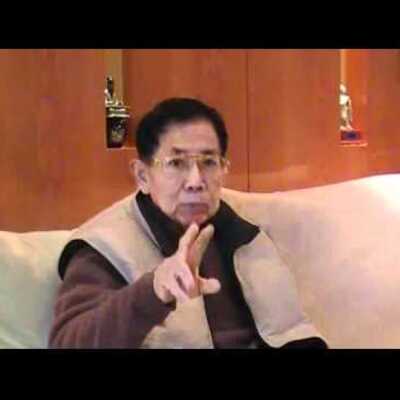
Working Toward a Civil Society (Episode 33): Sha Yexin
How can China build a true civil society? Since 2010, independent director Tiger Temple has conducted a series of interviews with scholars and civil society participants.
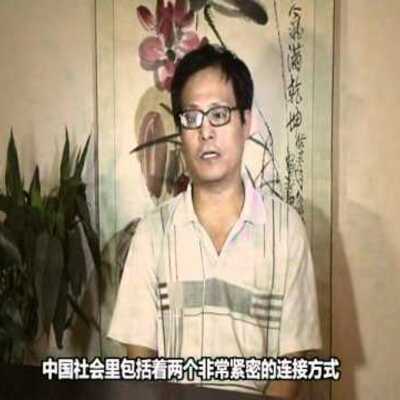
Working toward a Civil Society (Episode 3): 李海
How can China build a real civil society? Since 2010, independent director Tiger Temple sat for a series of interviews with scholars and civil society actors.

Xu Zhiyong
Chinese human rights activist Dr. Xu Zhiyong, twice imprisoned for his longstanding advocacy of civil society in China, was sentenced to 14 years in prison by the Chinese government in April 2023. The documentary by independent director Lao Hu Miao was filmed over a four-year period, beginning with the seizure of the Public League Legal Research Center, which Xu Zhiyong helped found in 2009, and ending with Xu's first prison sentence in 2014.

Three Days in Wukan
Wukan is a village in Luwei City, under the jurisdiction of Shanwei City, Guangdong Province. From 2011 to 2016, Wukan villagers have continued to fight to protect their land and fight for villagers' rights. Facing strong pressure from the government, some even paid with their lives. In the process, the villagers had elected their own villagers' committee by one person, one vote to practice their democratic rights. Although the protests were eventually suppressed, the impact was far-reaching. Ai Xiaoming rushed to the scene at the beginning of the Wukan incident and left this precious record.

Working toward a Civil Society (Episode 1): Zhang Hui
How can China build a real civil society? Since 2010, independent director Tiger Temple sat for a series of interviews with scholars and civil society actors.
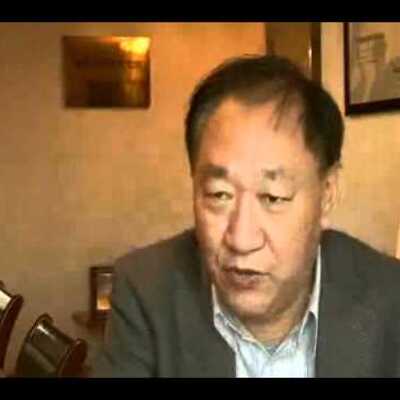
Working toward a Civil Society (Episode 31): Li Fan
How can China build a true civil society? Since 2010, independent director Tiger Temple has conducted a series of interviews with scholars and civil society participants.

South Side Street
South side Street near Tiananmen Square in Beijing has long been a gathering place for some homeless people as well as petitioners. The director became involved in the homeless relief charity in 2007, and continued to follow the film, which the director finished editing eight years later. The film was selected for the 12th China Independent Film Festival Documentary Competition.

Oral Interviews with Global Feminists
As one of China's foremost feminist activists and thinkers, Ai was interviewed by the Global Feminisms Project at the University of Michigan. In this interview, Ai talks about her upbringing as well as about the current state of feminism in China and its outlook.
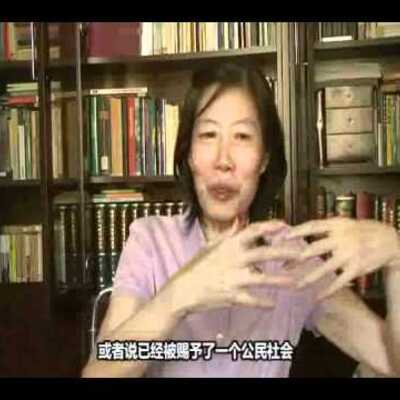
Working toward a Civil Society (Episode 7): Guo Yuhua
How can China build a real civil society? Since 2010, independent director Tiger Temple sat for a series of interviews with scholars and civil society actors.
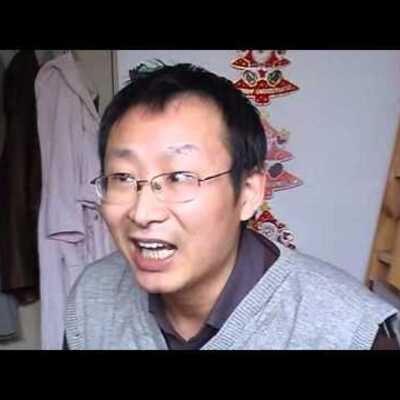
Working toward a Civil Society (Episode 37): Pillar Yang
How can China build a true civil society? Since 2010, independent director Tiger Temple has conducted a series of interviews with scholars and civil society participants.
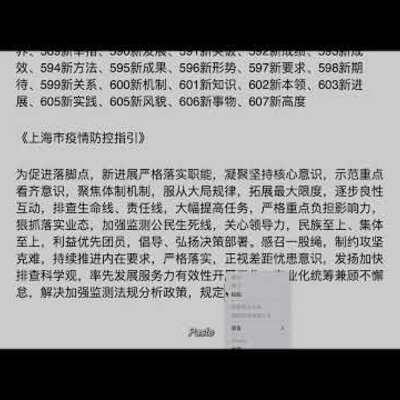
The Memo
In the spring of 2022, a wave of COVID-19 exploded in Shanghai. Under the policy of “Zero COVID,” 24 million residents were put under forced lockdown. Filmmakers and reporters used their phones, televisions, the internet, and other materials to capture scenes of lockdown and disputes between officials and civilians in Shanghai. Producers of this short film titled <i>The Memo</i> believe that it is necessary to record this historic episode in order to prevent our memories from fading away.
The production team, which was founded in 2020, strives to create works about the lower classes of Chinese society. <i>The Memo</i> was nominated for the Clermont-Féron Short Film Festival.
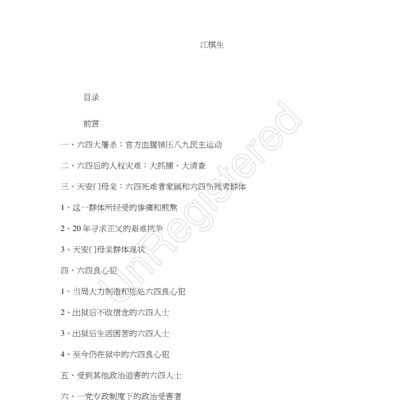
Jiang Qisheng: Civilian Report on the Situation of June 4 Victims in China
The Tiananmen Square massacre on June 4, 1989 and the subsequent mass arrests and purges created tens of thousands of June Fourth victims. Among them were June Fourth victims who fell into a pool of blood, the June Fourth disabled who were shot, the families of the June Fourth victims and the severely disabled, the June Fourth prisoners of conscience who were sentenced to imprisonment or re-education-through-labor, and the June Fourth victims who were subjected to other political persecution. On the occasion of the 20th anniversary of June Fourth, as part of Chinese civil society's efforts to recover the historical truth and rebuild historical memory, this report gives a basic description of the suffering of the June Fourth victims and their arduous journey over the past 20 years. It also analyzes the systemic factors that have contributed to the victims' suffering and proposes corresponding recommendations on how to change their living conditions.

Huang Sha, 2019 National Survey on the Treatment of Detainees in Custodial Facilities
This report focuses on the human rights situation in detention centers in China. Mr. Huang Sha distributed the questionnaire to the practicing lawyers he knew, and then the practicing lawyers took the questionnaire and filled it out in the form of questions and answers when they met detainees in the detention centers. The questionnaires were then collected and counted, resulting in a research report. The span of time for filling out the questionnaire in the detention center is: from July 2, 2019 to November 19, 2019. There were 101 valid questionnaires recovered.
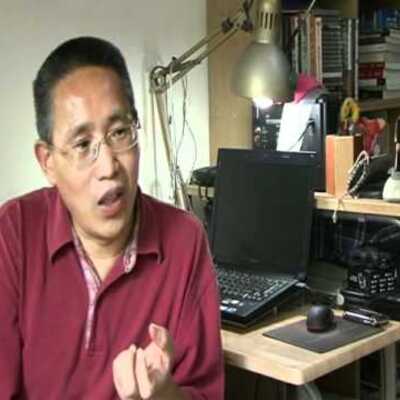
Working toward a Civil Society (Episode 20): Zhang Yaojie
How can China build a true civil society? Since 2010, independent director Tiger Temple has conducted a series of interviews with scholars and civil society participants.
